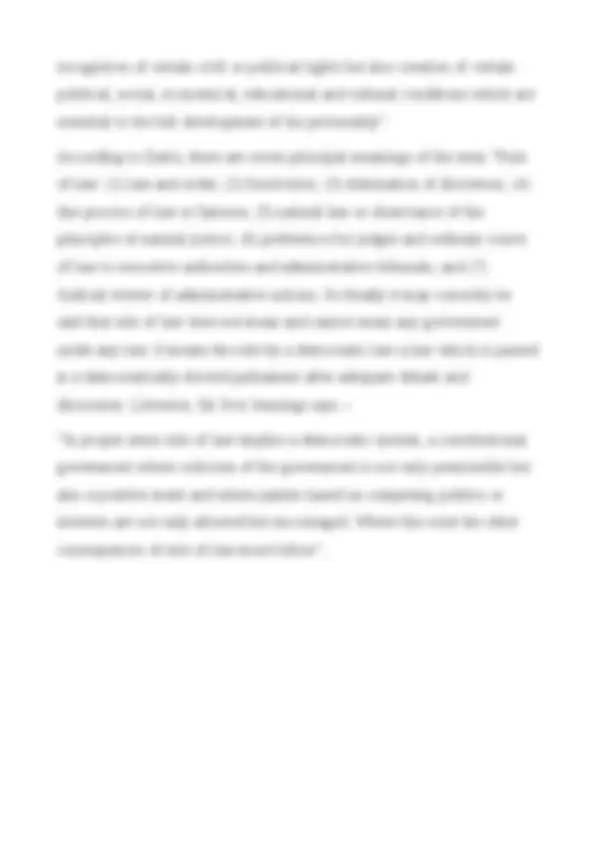



Study with the several resources on Docsity

Earn points by helping other students or get them with a premium plan


Prepare for your exams
Study with the several resources on Docsity

Earn points to download
Earn points by helping other students or get them with a premium plan
Community
Ask the community for help and clear up your study doubts
Discover the best universities in your country according to Docsity users
Free resources
Download our free guides on studying techniques, anxiety management strategies, and thesis advice from Docsity tutors
Dicey's rule of law theory, outlined in this document, consists of three main principles: the supremacy of law, equality before law, and the constitution as a result of ordinary law. However, this theory has limitations and has evolved over time. Modern interpretations, such as the delhi declaration of 1959, emphasize the importance of upholding human dignity and creating conditions for individual development.
Typology: Lecture notes
1 / 3

This page cannot be seen from the preview
Don't miss anything!


DICEY’S THEORY of Rule of Law consists 1 of three main principles:
But this principle of Dicey is not applicable in India as in India we consider the Constitution to be the basic ground work of laws from which all other laws are derived. COMPONENTS OF RULE OF LAW: Rule of Law is a dynamic concept but it is somewhat difficult to define. Every person has its own way of defining rule of law some think it to be the supremacy of law; some think it to be the principles like clarity, universality, stability etc. Due to all these reasons certain ingredients of Rule of Law have been identified and all which need to exist for the concept of Rule of Law to survive. Common ingredients of Rule of Law are: